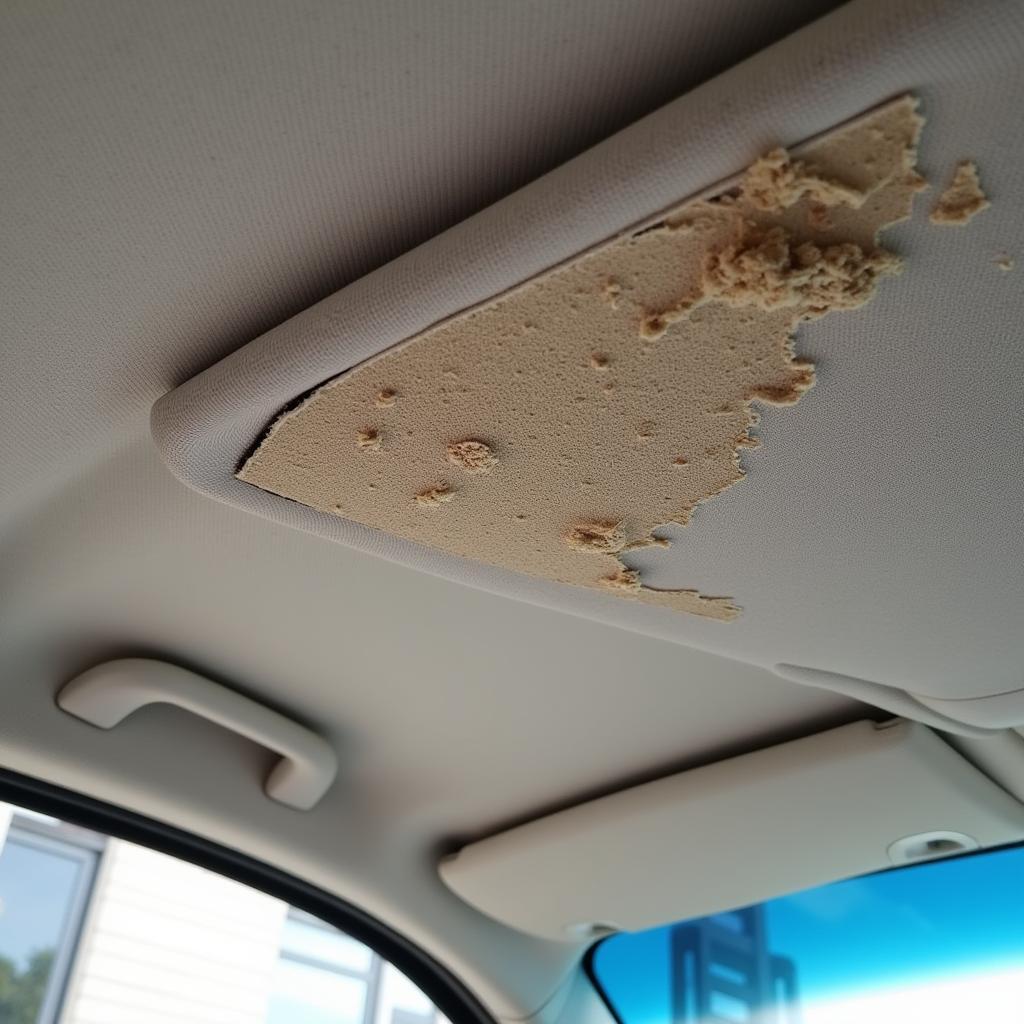Picture this: it’s a scorching summer day, and you’re stuck in traffic. You turn on your car’s AC for some relief, but all you get is a blast of hot air. Your heart sinks as you realize – you might have an AC leak.
Don’t sweat it! While an AC leak can be a major inconvenience, it’s a common car problem with a solution. This comprehensive guide will walk you through everything you need to know about how to identify, locate, and fix an AC leak in your car. Whether you’re a DIY enthusiast or prefer leaving it to the pros, we’ve got you covered.
Understanding Your Car’s AC System
Before we dive into the nitty-gritty of fixing an AC leak, it’s helpful to understand the basics of how your car’s air conditioning system works. Essentially, it’s a closed system that uses refrigerant, a special fluid, to cool the air.
Here’s a simplified breakdown:
- Compressor: This is the heart of the system, responsible for compressing the refrigerant and circulating it throughout the system.
- Condenser: Located at the front of your car, the condenser cools the refrigerant, changing it from a high-pressure gas to a high-pressure liquid.
- Receiver/Drier: This component removes any moisture from the refrigerant and stores excess refrigerant.
- Expansion Valve: This valve controls the flow of refrigerant into the evaporator.
- Evaporator: Positioned inside your dashboard, the evaporator absorbs heat from the cabin air as the refrigerant evaporates, thus cooling the air blown into your car.
An AC leak can occur in any of these components or the connecting hoses and seals.
Common Signs of an AC Leak
Knowing the signs of an AC leak can save you from a sweltering situation down the road.
Here are some telltale signs:
- Weak Airflow: This is often the first sign of an AC leak. If your AC is blowing but the air isn’t as cold or as strong as it used to be, you may have a leak.
- Warm Air: If your AC is blowing warm air, it’s a clear indication that the refrigerant level is low, likely due to a leak.
- Hissing or Bubbling Sounds: A hissing sound when your AC is on could indicate a refrigerant leak, while a bubbling noise might suggest a leak in the evaporator.
- Strange Smell: A sweet, musty, or chemical odor emanating from your AC vents could point to a refrigerant leak.
- Oily Residue: Check around the AC components and hoses for any oily residue, which could be a sign of leaking refrigerant.
Pinpointing the Leak
Locating an AC leak requires a systematic approach. Here are some common methods used:
1. Visual Inspection:
- Start by visually inspecting all the AC components, hoses, and connections for any signs of damage, cracks, or oily residue. Pay attention to areas where components are connected with clamps or seals.
2. UV Dye Test:
- This is a widely used and effective method for detecting AC leaks. It involves injecting a special UV dye into the AC system, which will illuminate under a UV light, revealing the location of the leak.
3. Electronic Leak Detector:
- An electronic leak detector is a sensitive device that can detect even the smallest refrigerant leaks. It works by emitting an audible signal when it detects refrigerant.
4. Nitrogen Pressure Test:
- In this method, the AC system is pressurized with nitrogen gas to check for leaks. Any pressure drop indicates a leak.
Fixing the AC Leak
The best way to fix an AC leak depends on the severity and location of the leak. Here are some common repair options:
- Tightening Connections: If the leak is at a loose connection, simply tightening the fitting might be all you need.
- Replacing O-rings and Seals: Worn-out O-rings and seals are common culprits of AC leaks and are relatively inexpensive to replace.
- Repairing or Replacing Hoses: Damaged or corroded hoses will need to be repaired or replaced.
- Replacing Components: In some cases, leaking components like the compressor, condenser, or evaporator might need to be replaced.
It’s important to note that working with refrigerant requires specialized knowledge and tools. In most cases, it’s best to leave AC leak repairs to qualified mechanics. They have the expertise and equipment to safely and effectively fix the leak, ensuring your AC system is restored to optimal condition.
Preventing Future Leaks
Prevention is always better than cure. Here are some tips to help prevent future AC leaks:
- Regular AC Service: Have your car’s AC system inspected and serviced annually or as recommended in your car’s owner’s manual.
- Keep it Running: Running your AC system regularly, even during cooler months, helps to keep the seals lubricated and prevents them from drying out.
- Address Issues Promptly: Don’t ignore any signs of AC problems. Addressing issues early can prevent minor leaks from becoming major headaches.
FAQs about AC Leaks in Cars
Q: How much does it cost to fix an AC leak in a car?
A: The ac leak fix cost car can vary widely depending on the severity and location of the leak, as well as the make and model of your car. Simple repairs like tightening connections or replacing O-rings can be relatively inexpensive, while replacing major components can be more costly.
Q: Can I drive my car with an AC leak?
A: While it’s not recommended to drive your car with an AC leak for extended periods, short trips might be possible. Keep in mind that driving with a refrigerant leak can lead to further damage to the AC system and potentially other engine components.
Q: How long does it take to fix an AC leak in a car?
A: The repair time depends on the complexity of the leak. Simple repairs might only take a couple of hours, while more involved repairs could take a day or more.
Q: Can I fix an AC leak myself?
A: If you have experience working on car AC systems and have the proper tools and safety equipment, you might be able to tackle simple AC leak repairs yourself. However, for most people, it’s best to leave it to the professionals.
Q: How often should I recharge my car’s AC?
A: A properly functioning car AC system should not require frequent recharges. If your AC needs to be recharged frequently, it’s a strong indication of a leak that needs to be addressed. You can find out how to fix refrigerant leak in ac car here.
Conclusion
An AC leak in your car can be a real buzzkill, especially during the hotter months. However, by understanding the signs, knowing how to locate the leak, and getting it fixed promptly, you can keep your cool and enjoy a comfortable ride.
Remember, regular maintenance is key to preventing future leaks and ensuring your car’s AC system stays in tip-top shape for years to come. If you’re experiencing AC problems or suspect a leak, don’t hesitate to reach out to our team of automotive experts at AutoTipPro. We’re here to help you beat the heat and get back on the road in comfort. You can contact us at +1 (641) 206-8880 or visit our office at 500 N St Mary’s St, San Antonio, TX 78205, United States.






Leave a Reply